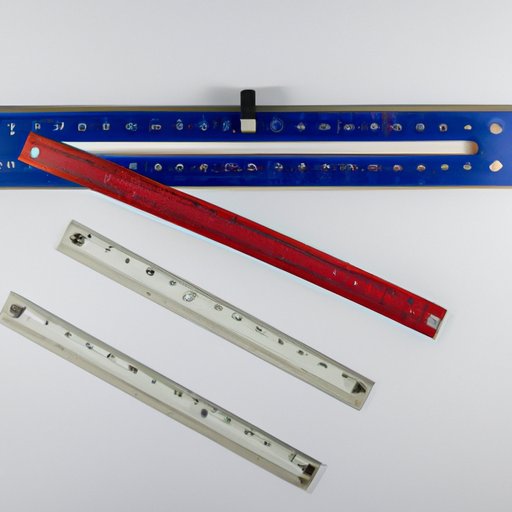
I. Introduction
When it comes to home improvement projects or purchasing materials, knowing how to calculate linear feet can save you time, money, and headaches. Linear feet is a measurement that is often used in the construction and manufacturing industries and is different from square feet or cubic feet. This article will provide a comprehensive guide on how to calculate linear feet and offer tips for accurate measurements.
II. What Are Linear Feet?
Linear feet measures length in feet, so it is the distance from one end of an object to another. It is a common way to measure materials that are sold or used in linear units, such as lumber, carpet, or pipes. Unlike square feet, which measures area, linear feet does not measure the width or height of an object or space. However, it is still an important measurement when it comes to planning and purchasing materials.
III. How to Calculate Linear Feet
Calculating linear feet is a straightforward process that involves measuring the length of an object or space. Here is a simple step-by-step guide:
- Measure the length of the object or space in inches or feet. For example, if you are measuring a countertop, use a tape measure to determine the length in inches.
- Convert the total inches to feet by dividing by 12. For example, if your countertop measures 96 inches, divide by 12 to get 8 feet.
- Multiply the total feet by the number of units or pieces. For example, if you need to know the linear feet of a fence, count the number of fence panels and multiply by the length of each panel in feet.
It is important to measure accurately to ensure that you have enough material for your project and do not end up with excess material that you do not need. For example, when measuring a countertop, be sure to measure the entire length, including any corners or bends. It may also be helpful to have someone assist you when measuring longer objects or spaces.
IV. When to Use Linear Feet vs. Square Feet
While linear feet measures length, square feet measures area. Square feet is used to determine the amount of coverage needed for flooring, walls, or other surfaces. However, linear feet is commonly used in scenarios such as measuring for lumber or countertops, where length is the primary concern. When planning a project, it is important to determine which measurement is appropriate based on the materials being used and the objectives of the project.
V. Alternative Methods or Tools for Calculating Linear Feet
In addition to traditional measuring methods, there are alternative tools and calculators available that can be helpful when calculating linear feet. For example, some online calculators allow you to input your measurements and calculate the linear feet needed for your project. There are also specialized measuring devices designed for specific materials, such as metal or lumber. However, it is important to note that these alternative methods may not always be accurate and may not take into account unique or irregular shapes.
VI. Visual Guide to Calculating Linear Feet
Visual aids can be helpful when learning how to calculate linear feet. Below is an image that demonstrates how to measure linear feet for a hardwood floor installation:

VII. Conclusion
Calculating linear feet is a useful skill for anyone involved in construction or home improvement projects. By following a simple step-by-step process and being mindful of accuracy and measurement units, you can ensure that you have enough material for your project without overbuying or overspending. Remember to consider whether linear feet or square feet is appropriate for your project and take advantage of alternative tools and visual aids when necessary. If you have any additional tips or experiences with calculating linear feet, please share them in the comments below.




